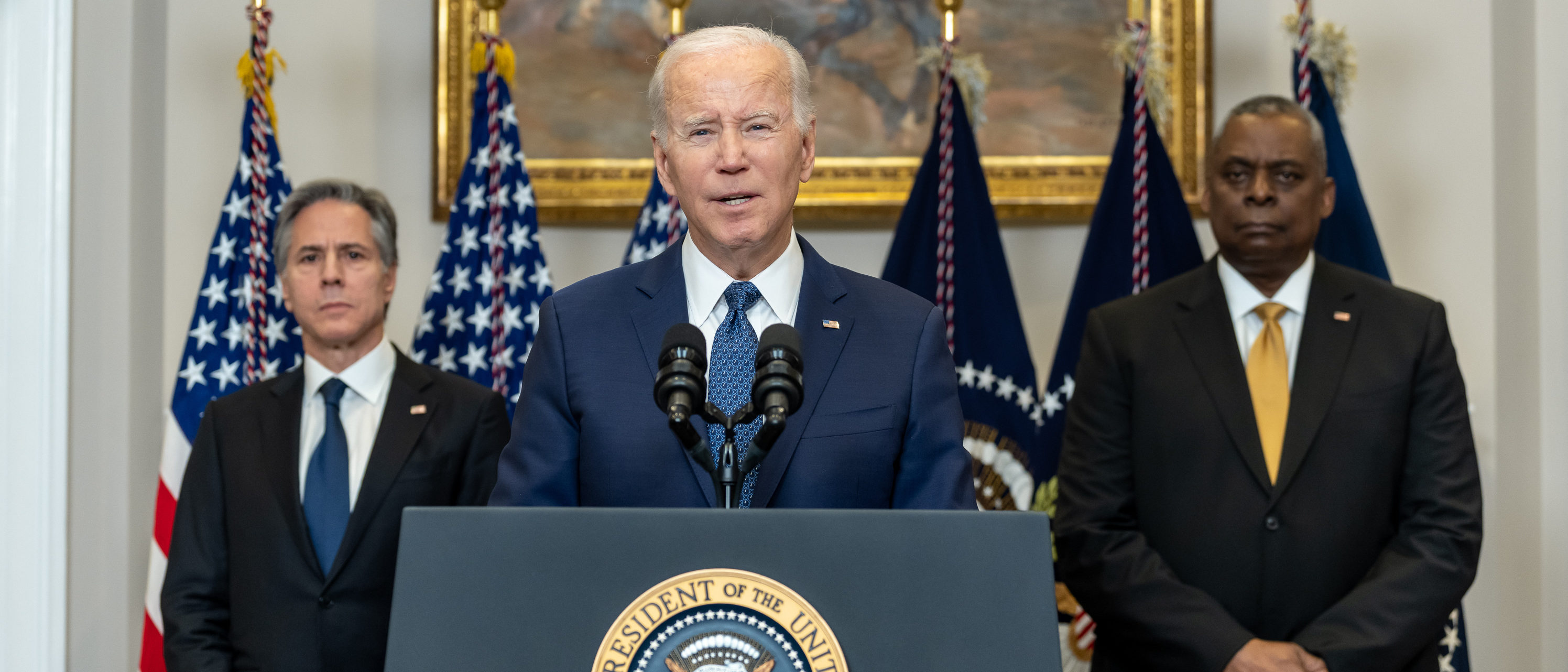National Defense
Air Force Officials Paid Nearly 8,000% More Than They Should Have On Soap Dispensers For Aircrafts, Watchdog Finds

Flickr/Official White House Photo by Cameron Smith
The Air Force has been overpaying for basic soap dispensers for its aircraft fleet — to the tune of nearly $150,000 in extra costs, according to the Pentagon’s watchdog agency.
The Department of Defense’s Office of Inspector General (OIG) launched an investigation into the Air Force’s expenditures on spare parts for its fleet of C-17s, the military’s largest transport aircraft. The investigation report, released on Tuesday, found that not only had Air Force officials massively overpaid by hundreds of thousands of dollars for some spare parts, but spent 7,943% more than it should have on soap dispensers for restrooms on the aircraft, or “more than 80 times the commercially available cost.”
The units were sold to the Air Force by Boeing. Though the OIG report retracted the unit cost of the soap dispensers in question, a review of prices of various commercial soap dispensers is roughly between $10 and $50 dollars on average, depending on the make and model of the product.
The spending fiasco occurred because the Air Force officials did not “validate the accuracy of data used for contract negotiation,” “conduct contract surveillance to identify price increases during contract execution” or “review invoices to determine fair and reasonable prices before payment,” according to the OIG report.
“In addition, the DoD did not provide clear guidance to the contracting officer to verify the accuracy of the bill of materials before negotiation or to review invoices for allowable, allocable, and reasonable costs before payment,” the report reads.
The problem extends beyond the soap dispensers, however. For example, the Air Force overpaid for pressure transmitters for C-17s by 3,556% and machine screws by 10,319%, according to the report. Even basic items like protective tape units were bought at a price tag 200% higher than they should have been.
In total, the Air Force overpaid $992,856 for 12 different C-17 spare parts, according to the report.
The OIG recommended the Air Force ensure that pricing and contract negotiation measures are better followed, as well as more stringent oversight of the negotiating process with Boeing. The relevant officials agreed with the OIG’s recommendations.
Boeing cooperated with the OIG during the investigation but refused to agree to publicly release the unit prices of the items in question, so they were retracted from the report.
“Until the Air Force establishes controls to require contracting officials review spare parts purchases throughout the execution of the contract, the Air Force will continue to overpay for spare parts for the remainder of” its active contracts with Boeing, the report reads. “The Air Force overpaying for spare parts may reduce the number of spare parts that Boeing can purchase on the contract, which could reduce C‑17 readiness worldwide.”
The Air Force, Boeing and the Pentagon did not immediately respond to a request for comment.
All content created by the Daily Caller News Foundation, an independent and nonpartisan newswire service, is available without charge to any legitimate news publisher that can provide a large audience. All republished articles must include our logo, our reporter’s byline and their DCNF affiliation. For any questions about our guidelines or partnering with us, please contact [email protected].

